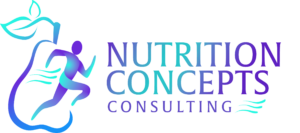Sports nutrition is a specialized branch of nutrition that focuses on the dietary needs of athletes and physically active individuals. It plays a crucial role in enhancing athletic performance, recovery, and overall health. Here are key aspects of sports nutrition:
1. Macronutrients
- Carbohydrates: Primary energy source for athletes. Important for endurance and high-intensity activities.
- Proteins: Essential for muscle repair, growth, and recovery. Sources include lean meats, dairy, legumes, and plant-based options.
- Fats: Necessary for long-term energy, hormone production, and cell function. Healthy fats include avocados, nuts, seeds, and oily fish.
2. Micronutrients
- Vitamins and Minerals: Vital for energy production, immune function, bone health, and muscle contraction. Key nutrients include iron, calcium, vitamin D, and B vitamins.
- Electrolytes: Sodium, potassium, and magnesium are important for maintaining fluid balance and muscle function and preventing cramps.
3. Hydration
- Adequate fluid intake is critical for optimal performance and recovery. Dehydration can impair performance and lead to serious health issues.
- Athletes should drink water regularly and consider sports drinks during prolonged, intense activities to replenish electrolytes.
4. Timing of Meals
- Pre-Exercise Nutrition: Focus on easily digestible carbohydrates and moderate protein to fuel activity.
- During Exercise: Carbohydrates and electrolytes to maintain energy and hydration during prolonged activities.
- Post-Exercise Nutrition: Carbohydrates to replenish glycogen stores, and protein to repair and build muscles within 30 minutes to 2 hours after exercise.
5. Supplements
- Common supplements include protein powders, creatine, branched-chain amino acids (BCAAs), and electrolyte solutions.
- Supplements should complement a balanced diet and be used responsibly.
6. Individualization
- Nutrition plans should be tailored to an athlete’s specific needs, considering factors like sport, intensity, duration of activity, body composition goals, and personal preferences and best addressed by a Registered Dietitian Nutritionist who specializes in sports nutrition.
7. Special Considerations
- Youth Athletes: Require adequate energy and nutrients to support growth and development.
- Female Athletes: May have specific needs related to menstrual cycle, bone health, and iron status.
- Vegetarian/Vegan Athletes: Need to ensure sufficient intake of protein, iron, calcium, vitamin B12, and other nutrients that may be less abundant in plant-based diets.
Practical Tips
- Plan meals and snacks ahead of time to ensure balanced nutrition.
- Focus on whole, minimally processed foods for most of the diet.
- Pay attention to portion sizes and avoid over- or under-eating.
- Monitor hydration status by checking urine color and staying aware of thirst signals.
Understanding and implementing proper sports nutrition can significantly enhance an athlete’s performance, recovery, and overall health.
